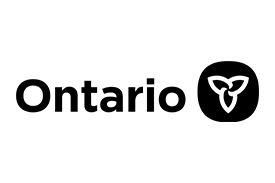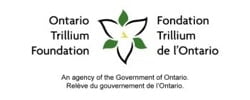Developmental Services
HIDDEN RACISM IN THE REGION OF PEEL
March 15, 2023
Literature Review and Demographic Analysis on Microaggression experienced by Black Youths
The Black population in the Region of Peel represents the second largest visible minority in the Region of Peel. It has steadily increased from 116,265 in 2011 to 137,295 in 2021, with a positive population growth of 18% over the last ten years. Migration is the main driving force behind the population increase in the Region of Peel, where Black families face new challenges in addressing their social, economic, educational, and healthcare needs.
The Peel Institute of Research and Training (PIRT), the research arm of Family Services of Peel (FSP), with the support of the Digital Citizen Contribution Program (DCCP) of the Department of Canadian Heritage, has conducted a literature review and demographic analysis. Online misinformation and disinformation were examined to determine how social media influence people’s perceptions of Black youth within the Region of Peel.
The literature review produced significant findings about the experiences of Black youth within the Region of Peel. Stereotypes of Black people portrayed in mainstream media have been perpetuated due to misinformation and disinformation on social media. These stereotypes contribute to racial microaggressions. Real-life consequences have been felt, within the education system and in daily life, in public and social spheres, in the workplace, in housing, in healthcare, in financial institutions, as well as with the police.
A demographic analysis was also conducted, examining the demographics of the Region of Peel. This analysis has determined where the highest concentrations of the Black population live in relation to the availability of Black-focused services. It also explored some of the critical life areas mentioned above, such as education, housing, and policing, to determine the Black population’s experiences in the Region of Peel and how they differ.
For more information, please contact:
Sandra Rupnarain Sam Doku
Executive Director Anti-Black Racism Coordinator

Adults with developmental disabilities can access our services



Adult Protective Services (APS)
Supporting individuals 18 and older with a developmental disability and or a mental health diagnosis, who are (and wish to) live independently in the community. We provide support and coaching in areas of daily independent living skills, budgeting, parenting skills, court support, medical support and advocacy support. Our services are person-centred and individualized. We provide support to clients who live in Brampton, Mississauga, Caledon and Bolton.
The APS program provides support to assist individuals in developing and implementing personal Individual Support Plans for adults who have a developmental disability, and to enhance their ability to live independently in their community. An Individual Service Plan is developed in conjunction with the APS Worker and the individual to achieve identified goals. Individuals must voluntarily request Family Services of Peel’s (FSP) assistance as a prerequisite for our involvement.


Requirements for becoming a client are:
- Resides in the Region of Peel
- Is an adult, 18 years of age and over
- Has been diagnosed as having a developmental disability or dual diagnosis
- Is capable of residing independently with available supports and is living independently in the community or planning to do so in the near future
- He/she is prepared to voluntarily participate in the development of an individualized plan of service
- He/she requires the services of an APSW facilitator
Trained counsellors provide:
- 1:1 counselling support
- Life skills development
- In-office, community or home visit support
- Workshops to enhance client personal development and life skills


Supported Independent Living (SIL)
The Supported Independent Living (SIL) Program supports developmentally disabled adults who live independently in the Region of Peel. Individuals in this program must be able to live independently, requiring only a set amount of support hours each week to maintain their independent living skills. Facilitators work with the individual to determine a suitable service goal plan then offer support, life skills assistance, housing support, mentoring, and crisis intervention on a 24-hour basis.
Eligibility:
- Resides in the Region of Peel
- A person who has a developmental disability and dual diagnosis
- Adult, aged 18 years or older
- Requires intensive supervision of specific allocated hours in order to live independently
- Able to be responsible for own life decisions
- Must be living independently
- Will receive a fixed amount of support hours as determined by the Ministry
- Must be deemed eligible / assessed by Developmental Services of Ontario (DSO)
To connect with your local DSO, please visit https://dsocwr.ca or call 1-888-941-1121.

To Help People with Developmental Disabilities
Our skilled staff will work with you and community partners to help you set and achieve your personal goals. For info, call our Intake Department at
905-453-5775.






